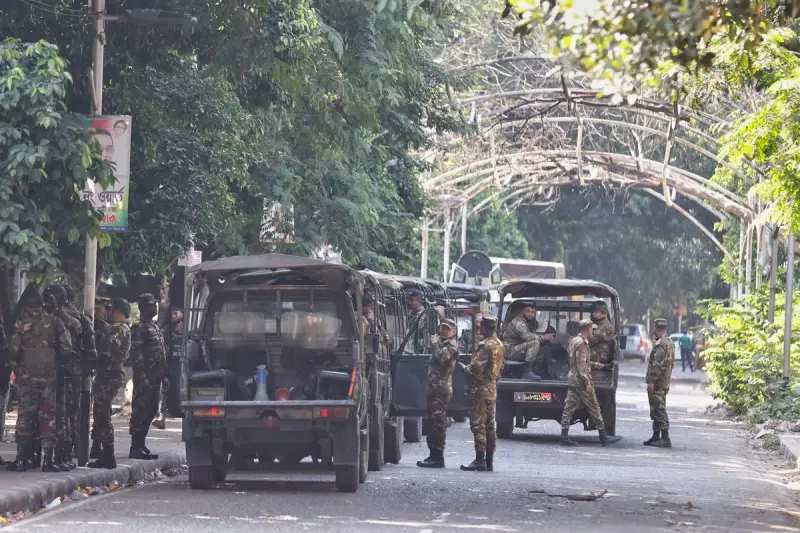
Calm Follows Historic Death Sentence for Ousted Leader
A surprising calm has settled over Bangladesh's capital, Dhaka, and other major cities, just one day after a special tribunal delivered a death sentence to the country's ousted prime minister, Sheikh Hasina. This tranquillity persists despite a call for a nationwide shutdown by her former political party, the Awami League, which has vehemently rejected the court's decision.
Details of the Tribunal's Verdict
On Monday, the International Crimes Tribunal found the 78-year-old former leader guilty on five charges of crimes against humanity. The charges stem from her government's crackdown on student-led protests in July and August of last year. The tribunal handed down the death sentence in absentia to both Hasina and her former Home Minister, Asaduzzaman Khan, for their involvement in authorising deadly force against demonstrators.
In addition to the capital punishment, Hasina was sentenced to imprisonment until natural death for making inflammatory remarks and for ordering the extermination of student protesters using helicopters, drones, and lethal weapons. The court proceedings revealed that a former police chief was sentenced to five years in prison after pleading guilty and testifying against Hasina.
The protests last year were triggered by discontent over a quota system for government jobs, which critics argued favoured allies of Hasina's party. The interim government reported that the crackdown resulted in more than 800 deaths and approximately 14,000 injuries, though United Nations estimates from February placed the death toll as high as 1,400.
Political Fallout and International Reaction
The uprising ultimately led to the collapse of Hasina's 15-year rule on 5 August 2024. Both Hasina and Khan fled to neighbouring India, which has so far declined to extradite them, making it highly unlikely the sentences will be carried out. Under the tribunal's rules, Hasina cannot appeal the verdict unless she surrenders or is arrested within 30 days of the sentencing.
The Awami League party dismissed the trial as a 'kangaroo court'. In the immediate aftermath of the verdict, Hasina's opponents clashed with security forces and even attempted to demolish the home of her father, Bangladesh's independence leader. However, by Tuesday, daily life appeared mostly normal, with shops and schools remaining open, though citizens expressed deep anxiety about the nation's future.
The international response has been mixed. The United Nations stated the sentencing marked an important moment for victims, while human rights organisations expressed significant concerns. Human Rights Watch questioned the trial's fairness, and Amnesty International condemned the use of the death penalty, stating the trial was 'neither fair nor just'.
Bangladesh is currently under the stewardship of an interim government led by Nobel Peace Prize laureate Muhammad Yunus. An election is planned for February, as the nation of 170 million people navigates this period of profound political transition.





